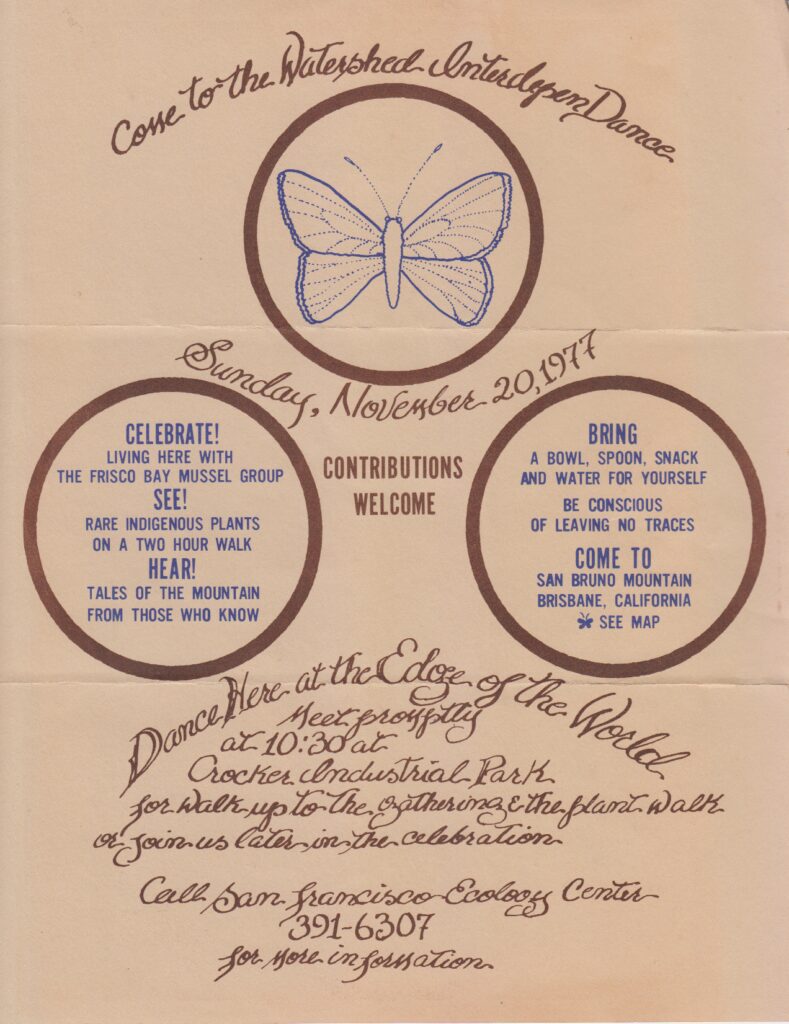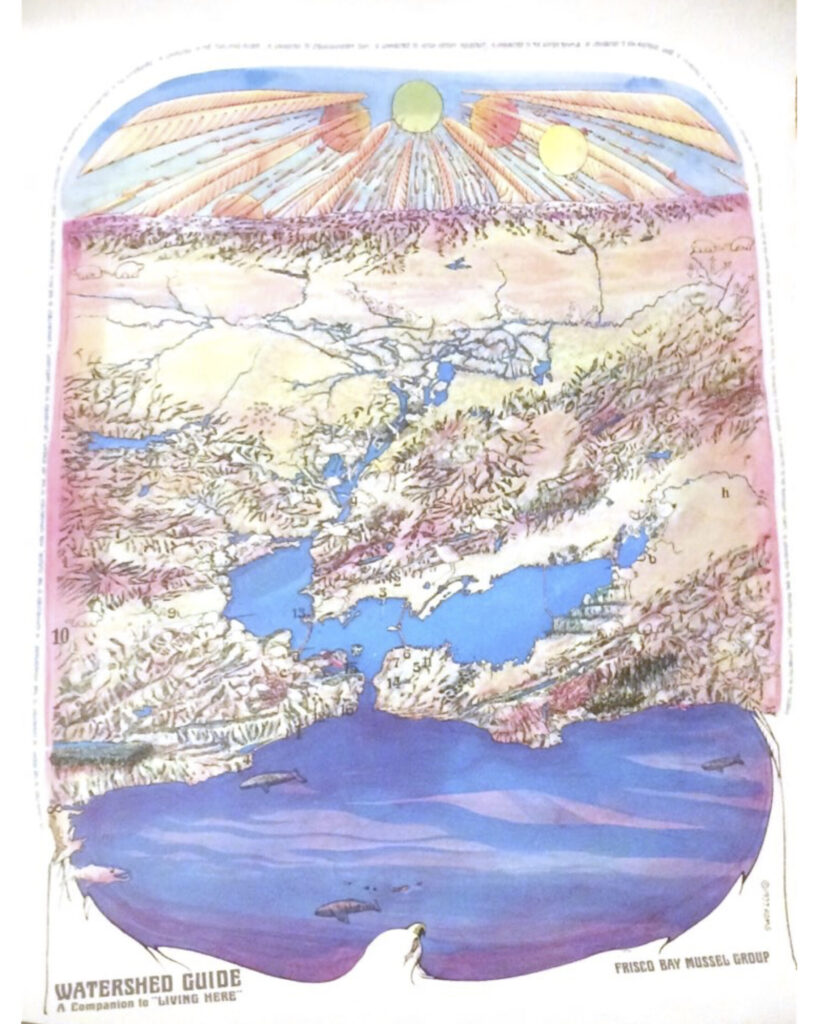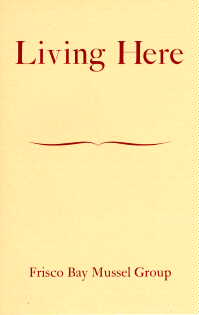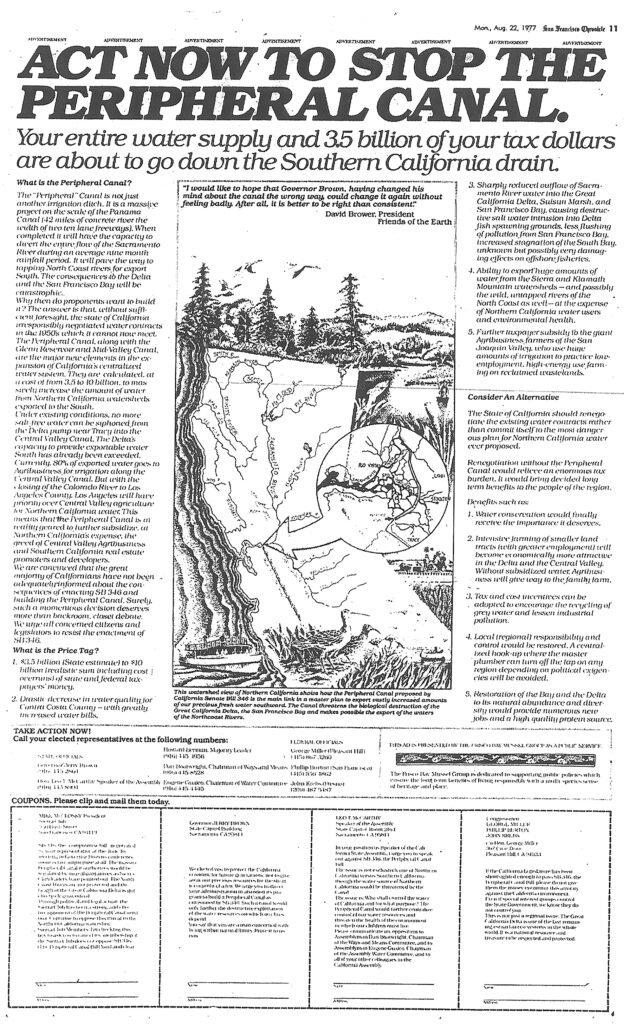
In 1975 Planet Drum along with other San Francisco Bay Area activists formed a bioregional study group or “committee of correspondence” named the Frisco Bay Mussel Group. It met monthly and studied various aspects of Bay Area ecology and culture.
The group published a map and booklet about the Bay Area, The Watershed Guide & Living Here in May of 1977. [text of Living Here]


The Group stated its intentions as,
“The Frisco Bay Mussel Group is a ‘committee of correspondence’ to act as a forum for sharing regional identity and watershed consciousness. There is no city/country division within the group because both locales are essentially interrelated through and encompassed by the San Francisco Bay-Sacramento River Estuary watershed. But there is a spirit to alter the dominance of city demands on the region, and extend a sense of regionhood to everyone living within it. Rather than restricting itself to areas such as ecology, environment or conservation—which appear to be directly related but tend to divorce the full activity of human lives from other natural processes, the Mussel Group is developing information about:
- native inhabitants, small self-sufficient early homesteaders, new settlers
- the extent of the watershed: biotic and life-realm characteristics—geology, climate, plants & animals
- priorities for restoring natural systems & removing exploitation threats
- manufacturing and agriculture justified by non-exhaustive use of labor and renewable soil, energy and materials within in the region
- the spirit of multi-species relationships within the region and ceremonies to ensure biotic richness and diversity
- partnership and trade within the watershed and with other distinct regions
- a form of planet-wide regional address”
The Frisco Bay Mussel Group’s discussions and research about the California State Water Project led the group to conclude that interbasin water transfers from Northern California to Southern California were detrimental to the ecology of the North. At the time, there was a referendum on the ballot to build a “Peripheral Canal” around the Delta which some environmentalists supported because they assumed it was the best environmental deal they could to get. The Frisco Bay Mussel Group took out a full-page ad in the San Francisco Chronicle explaining the ecological implications that building the Peripheral Canal would have on Northern California. The ad influenced environmental organizations (e.g. The Sierra Club) to change their stand and oppose the initiative, and voters defeated the referendum.

